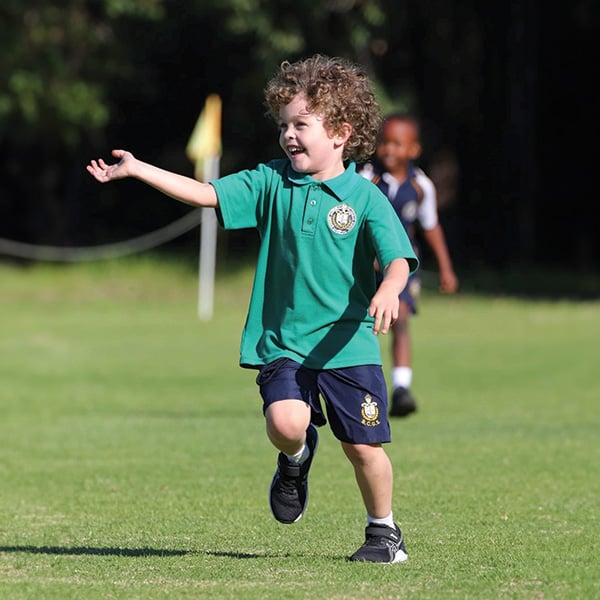Search

COMBAT CF is one of two long-standing international trials which have resulted in new early intervention options helping to reduce progressive lung damage in kids living with CF.
Research
The effect of inhaled hypertonic saline on lung structure in children aged 3-6 years with cystic fibrosis (SHIP-CT): a multicentre, randomised, double-blind, controlled trialIn the Saline Hypertonic in Preschoolers (SHIP) study, inhaled 7% hypertonic saline improved the lung clearance index in children aged 3-6 years with cystic fibrosis, but it remained unclear whether improvement is also seen in structural lung disease. We aimed to assess the effect of inhaled hypertonic saline on chest CT imaging in children aged 3-6 years with cystic fibrosis.
Research
Association between early respiratory viral infections and structural lung disease in infants with cystic fibrosisInfants with cystic fibrosis (CF) develop structural lung disease early in life, and viral infections are associated with progressive lung disease. We hypothesized that the presence of respiratory viruses would be associated with structural lung disease on computed tomography (CT) of the chest in infants with CF.
Research
Characterisation of lung function trajectories and associated early-life predictors in an Australian birth cohort studyThere is growing evidence that lung function in early-life predicts later lung function. Adverse events over the lifespan might influence an individual’s lung function trajectory, resulting in poor respiratory health. The aim of this study is to identify early-life risk factors and their impact on lung function trajectories to prevent long-term lung impairments.
Research
Comparison of home ambulatory type 2 polysomnography with a portable monitoring device and in-laboratory type 1 polysomnography for the diagnosis of obstructive sleep apnea in childrenTo compare type 2 polysomnography (T2PSG) to the gold standard type 1 in-laboratory polysomnography (T1PSG) for diagnosing obstructive sleep apnea (OSA) in children; validate home T2PSG in children with suspected OSA.
Research
Associations between respiratory and vascular function in early childhoodThe link between respiratory and vascular health is well documented in adult populations. Impaired lung function is consistently associated with thicker arteries and higher incidence of cardiovascular disease. However, there are limited data on this relationship in young children and the studies that exist have focussed on populations at high risk of cardiorespiratory morbidity.
Research
Previous Influenza Infection Exacerbates Allergen Specific Response and Impairs Airway Barrier Integrity in Pre-Sensitized MiceIn this study we assessed the effects of antigen exposure in mice pre‐sensitized with allergen following viral infection on changes in lung function, cellular responses and tight junction expression.
Research
Longitudinal effects of prenatal exposure to plastic-derived chemicals and their metabolites on asthma and lung function from childhood into adulthoodEnvironmental exposure to phthalates and bisphenol A (BPA), chemicals used in the production of plastics, may increase risk for asthma and allergies. However, little is known about the long-term effects of early life exposure to these compounds.
Research
Protocol for establishing a core outcome set for evaluation in studies of pulmonary exacerbations in people with cystic fibrosisPulmonary exacerbations are associated with increased morbidity and mortality in people with cystic fibrosis (CF). There is no consensus about which outcomes should be evaluated in studies of pulmonary exacerbations or how these outcomes should be measured.
Research
Spring-infusors: How a simple and small solution can create king-sized complexityThe aims of the study were to investigate family and hospital staff views about the use of spring-infusor devices for administration of intravenous antibiotic medications, to examine if the device is acceptable and feasible and to map a process for implementation.
